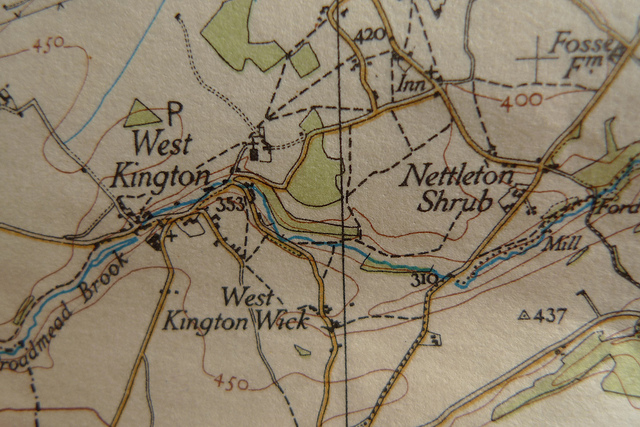It would be neither feasible nor sensible to instruct the Boundary Commission to create ‘competitive’ constituencies
In their recent IPPR report The Democracy Commission Mathew Lawrence and Sarah Birch propose four ways to improve the quality of British democracy, ranging from introducing the single transferrable vote in local government elections in England and Wales to establishing a ‘Democracy Commission’ to facilitate participation. Their proposals seek to tackle the unrepresentativeness of the House of Commons, brought about in part by the first-past-the-post system, which produces disproportional electoral outcomes with some parties substantially over-represented there relative to their vote shares and others even more substantially under-represented; one party predominates in the complement of MPs returned from most regions, even though it lacks even a majority of votes there.
One of the reasons they suggest for this disproportionality is that there are too many safe seats and too few marginal ones. Electioneering focuses very much on the latter as there is little incentive for parties to encourage participation in places where the outcome is a foregone conclusion. So one of the IPPR proposals is that the rules implemented by the four Boundary Commissions that recommend the boundaries of Parliamentary constituencies should be changed. In effect, the Commissions would be instructed to undertake a form of gerrymandering by seeking:
‘… to redraw a ‘safe’ seat to make it a ‘marginal’. ‘Gerrymandering’ safe seats out of existence where possible will increase the competitiveness of elections and reduce the oversized electoral power that voters in marginals currently have, and as a result is likely to improve participation rates.’
For the Boundary Commissions to implement that new ‘duty to consider the electoral competitiveness of a seat when reviewing constituency boundaries’ Lawrence and Birch say that they:
‘…could do this by altering the boundaries of particular seats based on the aggregate outcome of the last three general elections by ward results.’
This assumes, of course, that the past is a reasonable guide to the present, let alone the future – and it is the future that they want to gerrymander!
Wards are the main building blocks for creating constituencies – though increasingly the Commissions are finding it difficult to meet the other criteria set, including electoral inequality (all seats must have electorates within +/-5% of the UK average). The use of wards is tricky if the goal is equality of electorates across constituencies as the current legislation now requires. This gives rise to the pressure to split wards, a tactic already practised in Scotland.
Even without the issue of splitting wards, the proposal isn’t feasible. Votes at UK general elections are not counted by ward, only by constituency, so we have no accurate information on the number of votes cast within constituencies. If wards are split the data problem becomes even more acute: there are just no data at all on partisan preferences at the sub-ward scale. Without a major change in the way votes are counted and reported in the UK (i.e. by polling district) there is no way that the Lawrence/Birch proposal could be implemented. Data are available at the ward level on voting at local elections but turnout then is generally low, the pattern of voting may not reflect that at either the previous or the subsequent general election, and local issues may prevail that make assumptions about party preferences at general elections unrealistic. Sophisticated methods have been devised which produce estimates of what the voting in each ward would have been at a general election, but these are estimates only and if they were used by the Boundary Commissions they would undoubtedly be subject to challenge by the political parties.
And even if the data were available, it couldn’t be done to any great effect – the electoral geography of Great Britain is such that in most places the Lawrence/Birch goal is unattainable. They imply that there are plenty of places where a safe seat for party X is adjacent to one that is safe for party Y, and if the boundaries of both were redrawn then two marginal constituencies could result. But that is only rarely the case. Substantial research done more than thirty years ago showed that in many places whatever constituency boundaries were drawn the outcome would be a very similar set of election results. If party X dominates in an area, a city say, then it is very unlikely that party Y can win many seats there, however hard you try to gerrymander the situation: the research showed that – in the late 1960s/early 1970s – it was not possible to create a Conservative seat, or even a marginal Labour seat, in either Hull or many London boroughs, and very difficult to create one in Leicester. In most rural shires, by contrast, it was very difficult then to create other than Conservative hegemony.
We have more parties now, making the gerrymandering potential slightly greater in some areas – though the Liberal Democrat collapse in 2015 means that more constituencies than at previous elections are dominated by the Conservative and Labour parties. The geography of their support within each area is even more polarised than at earlier elections, with the consequence that there are fewer marginal seats than ever, and many more safe seats. At the 2010 general election, the Conservatives won 148 seats with a majority of 20 percentage points or more and Labour won 115: five years later, the respective figures were 208 and 135. Against that, whereas in 2010 there were 167 seats where the Conservatives either won or lost by 10 points or less, in 2015 there were 106: the comparable figures for Labour were 154 and 98.
With such a spatially polarised map, any extensive gerrymandering of the type proposed by Lawrence and Birch would just not be feasible. Sure, a few constituencies – probably very odd-shaped – could be created to create a marginal constituency out of several safe ones, just as American gerrymanderers can create safe seats for their own party. But they would be few and probably unacceptable to many on a variety of grounds – and thus be challenged by the parties during the public consultation process of Boundary Commission reviews (unless Lawrence and Birch propose to abolish that element of the procedure): the parties want, and press for, as many safe seats as possible. And in any case, a marginal constituency for which parties: Labour and the Conservatives; Labour and UKIP; the Conservatives and the Liberal Democrats?
But let’s suppose that the data are available and it is feasible to do the gerrymandering proposed. We manage to make, say, 400 of the country’s 600 seats marginal. And then the Conservatives win 300 of them, because they have five per cent more of the votes than Labour. The result – a disproportional outcome. More marginal seats would not necessarily result in a less disproportional House of Commons. Nor does it guarantee the ‘right’ winner in Parliament: what happens in the above scenario if the Conservatives do better in the marginals but worse in the safe seats? As some of the safe seats will be Conservative wins, it would possible for them to win a Parliamentary majority even if they are beaten on the national popular vote – hardly the more representative outcome Lawrence and Birch are aiming for!
The UK Boundary Commissions have reputations for their independence, which they defend ferociously – and rightly so. Lawrence and Birch’s proposal would politicise the Commissions. This would be a backward step, even if the gerrymandering aim was feasible and sensible. Elsewhere in the report, Lawrence and Birch indicate that IPPR ‘remains committed to the introduction of a more proportional electoral system’. They should stick to that goal, and not divert attention to unworkable proposals that, even if implementable and implemented, would have only a minimal impact. More radical, and more sensible, would be changing to the electoral system to remove the current disproportionality of general election results.
—
Note: this post originally appeared on the Constitution Unit blog, and is reposted with permission. It represents the views of the authors and not those of Democratic Audit UK or the LSE. Please read our comments policy before posting.
—
 Ron Johnston is a professor in the School of Geographical Sciences at the University of Bristol
Ron Johnston is a professor in the School of Geographical Sciences at the University of Bristol
 David Rossiter is a retired Research Fellow who formerly worked at the Universities of Bristol, Leeds, Oxford and Sheffield
David Rossiter is a retired Research Fellow who formerly worked at the Universities of Bristol, Leeds, Oxford and Sheffield
 Charles Pattie is a professor in the Department of Geography at the University of Sheffield. They have written together on the Boundary Commissions and constituency definition in the UK since the early 1980s and co-authored The Boundary Commissions: Redrawing the UK’s Map of Parliamentary Constituencies (University of Manchester Press, 1999).
Charles Pattie is a professor in the Department of Geography at the University of Sheffield. They have written together on the Boundary Commissions and constituency definition in the UK since the early 1980s and co-authored The Boundary Commissions: Redrawing the UK’s Map of Parliamentary Constituencies (University of Manchester Press, 1999).






 Democratic Audit's core funding is provided by the Joseph Rowntree Charitable Trust. Additional funding is provided by the London School of Economics.
Democratic Audit's core funding is provided by the Joseph Rowntree Charitable Trust. Additional funding is provided by the London School of Economics.
It would be neither feasible nor sensible to instruct the Boundary Commission to create competitive constituencies https://t.co/84ETFrBxFT
You could gerrymander marginals American-style – by taking cities and their surrounding countryside and dividing it into pie-slices, so each constituency is a hundred miles long but very narrow.
You’d completely destroy the idea of constituencies representing a locality, though.
Not feasible or sensible to ask Boundary Commission to create ‘competitive’ constituencies – via @DemocraticAudit https://t.co/gIUOWQtILK
RT @TheSocReview: It would be neither feasible nor sensible to instruct the Boundary Commission to create ‘competitive’ constituencies htt…
Intriguing article on @democraticaudit concluding that Boundary Commission should not ‘gerrymander’ safe seats out: https://t.co/P5x0HAUy5B
It would be neither feasible nor sensible to instruct the Boundary Commission to create ‘competitive’ constituencies https://t.co/V3gMKaG4n2
It would be neither feasible nor sensible to instruct the Boundary Commission to create ‘competitive’ constituencies https://t.co/j6YDK6WOPB
It would be neither feasible nor sensible to instruct the Boundary Commission to create ‘competitive’ constitu… https://t.co/SpNAqg3ebq
It would be neither feasible nor sensible to instruct the Boundary Commission to create ‘competitive’ constituenci… https://t.co/D1H3YUVJpc
It would be neither feasible nor sensible to instruct the Boundary Commission … – Democratic Audit UK https://t.co/1id2s5dzPH
It would be neither feasible nor sensible to instruct the Boundary Commission to create… https://t.co/EKnsrprWTc https://t.co/5bju7wR6U9